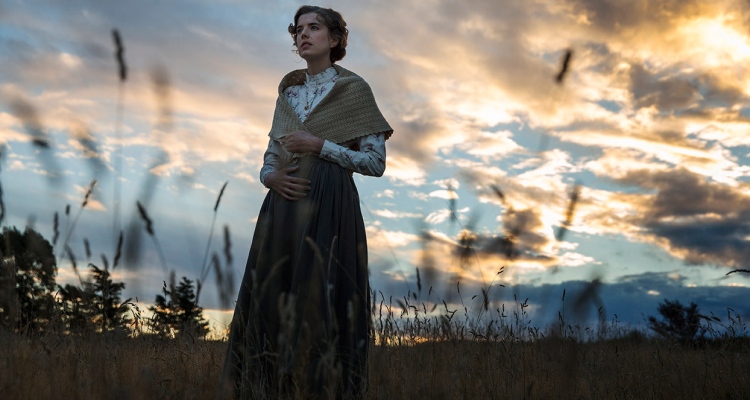To a certain breed of cinephile, Terence Davies is the greatest director alive. He seems to speak film’s language with more deftness, tenderness, and acuity than anyone else who stands behind a camera for a living. Since his earliest short film work, he’s managed to transcend the biographical nature of his screenplays and show the human condition in terms even the most hard-hearted could understand. His first three feature films (“Distant Voices,” “Still Lives,” “The Long Day Closes” and “The Neon Bible,” based on the book by John Kennedy Toole) could all be read as explorations of Davies troubled youth. All three feature saintly mother figures, and center on children whose upbringing is colored by the presence or absence of an abusive father. And yet, Davies cinematographic storytelling is so rich, so fluid, timeless and gorgeous, that these films could be about anything and still bring one to tears. He controlled the spaces of these ill-starred childhoods like the directors of the American musicals he was raised on, fusing religious iconography, classical and popular music, and splendid lighting to inimitable effect. “The Long Day Closes” is the only film I’d call perfect.
READ MORE: Watch: New U.S. Trailer For Terence Davies’ ‘Sunset Song’ Starring Agyness Deyn
Davies took a long hiatus after adapting Edith Warton‘s “The House of Mirth” in the year 2000, looking for funding that would not materialize for his passion projects. His 2008 documentary “Of Time And The City,” a marvelous tour of Liverpool told in Davies’ own unforgettable, sonorous voice, signaled the end to his fallow period. He followed it up with 2011’s rapturous “The Deep Blue Sea” and it looks as though we may get not one but two Davies films released this year. His Emily Dickinson biopic “A Quiet Passion” is still in need of an American distributor, but “Sunset Song,” based on the novel by Lewis Grassic Gibbon, will be released in theaters this Friday. It tells the achingly lovely and tragic story of Chris Guthrie (Agyness Deyn), a stoic Scottish woman who must contend with a tyrant father, the loss of many members of her family, and a constantly imperiled independence from the many institutions that lie just over the next hill.
I asked Davies about the making of “Sunset Song,” the future of cinema, passion projects, and of course got him talking about his favourite old movies. There are few pleasures as formidable as hearing Terence Davies talk about his great love of the cinema. I could listen to him talk about Thelma Ritter and John Ford all day. I’ve added clips of his own work and the films that meant the most to him in his youth to help viewers see the world the way Davies himself does.
Watch the video interview above.




